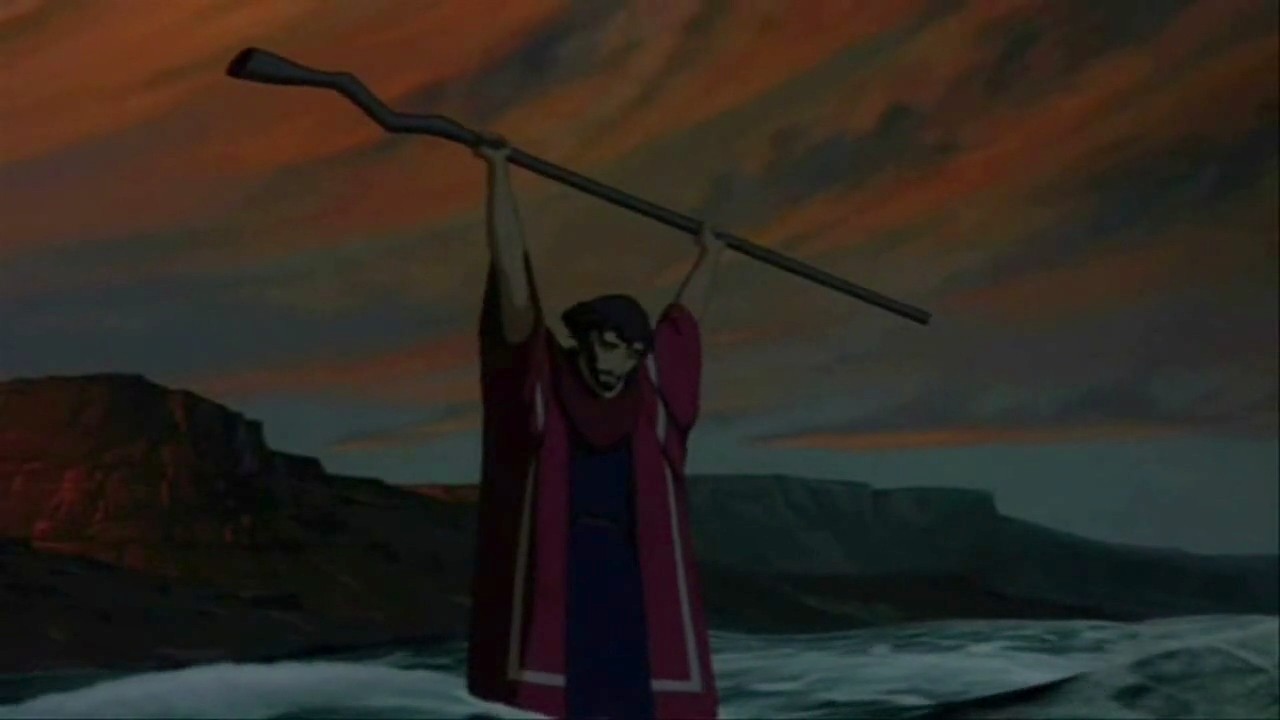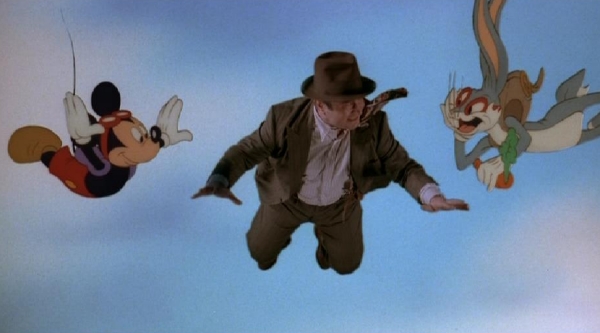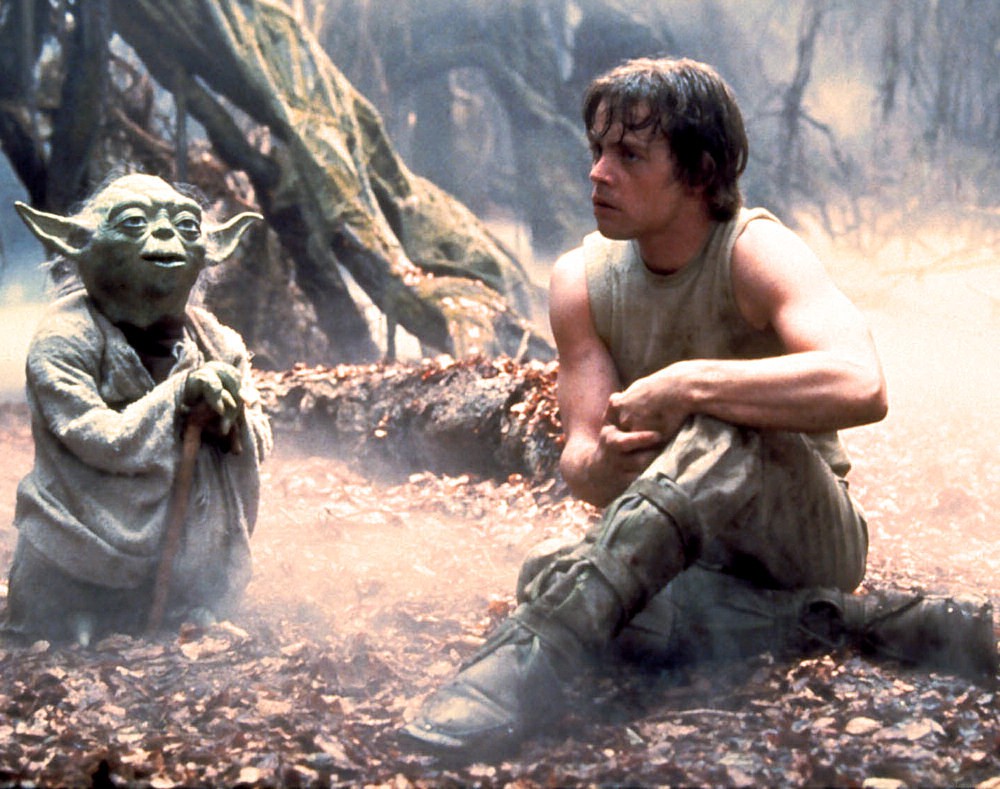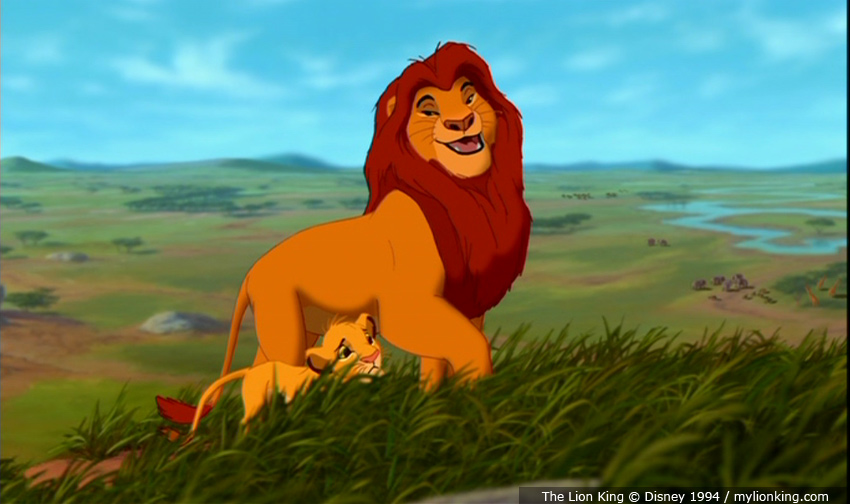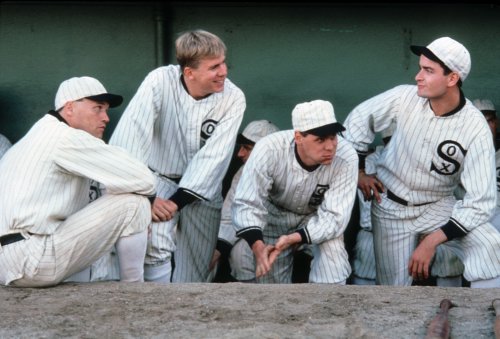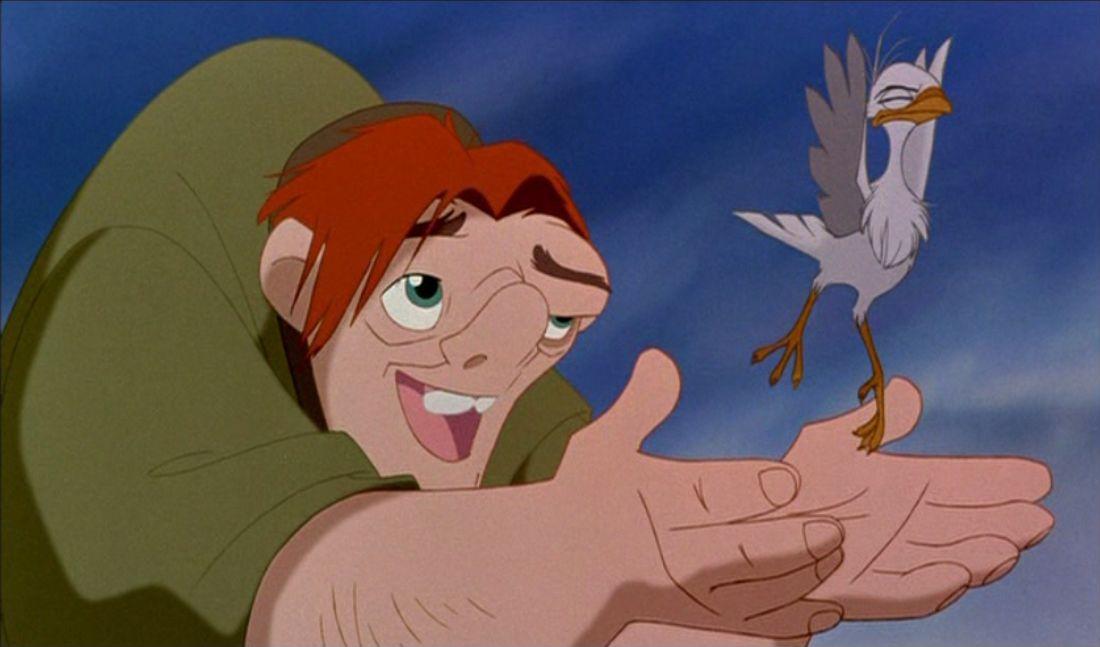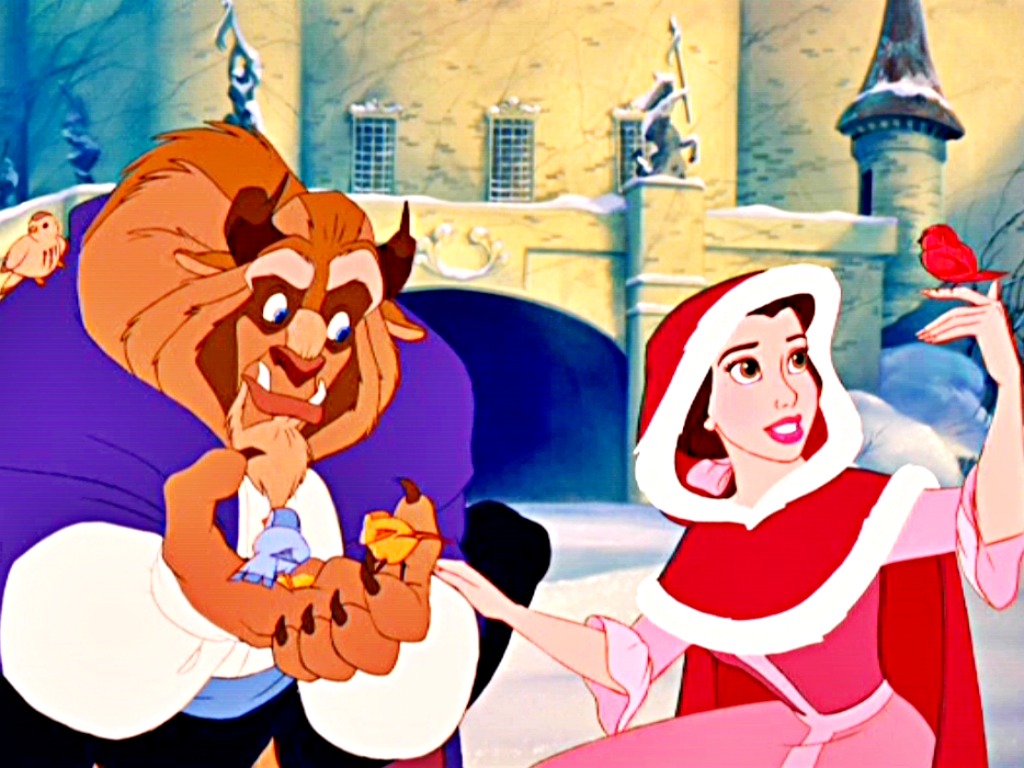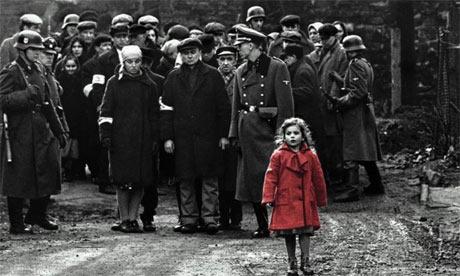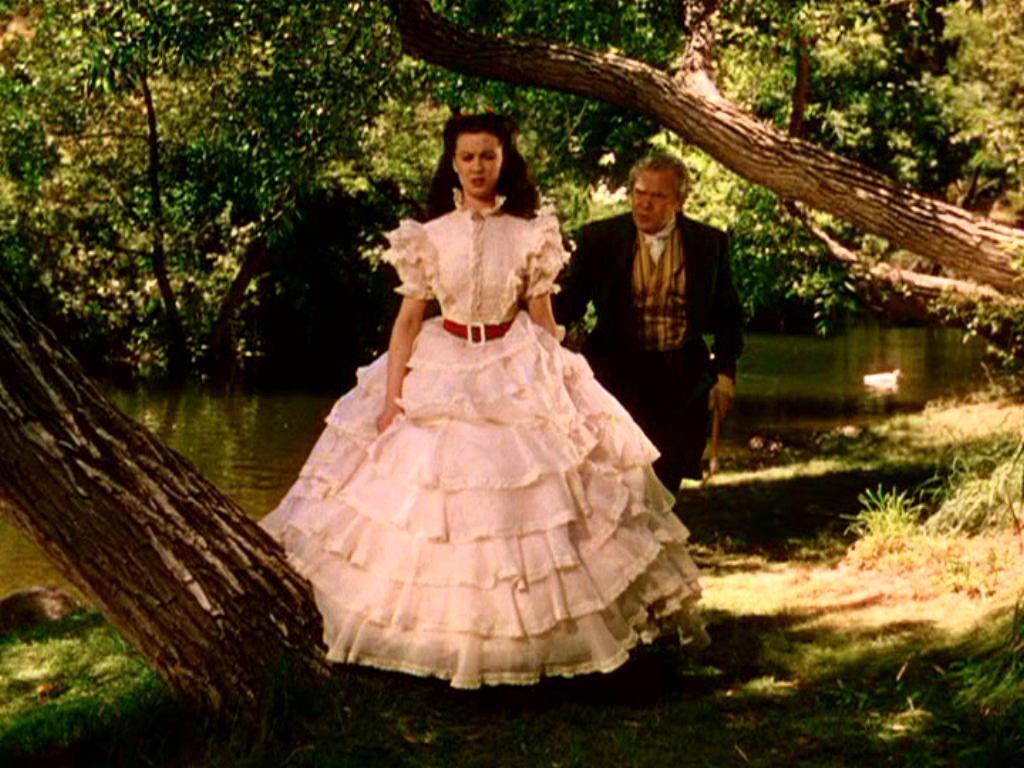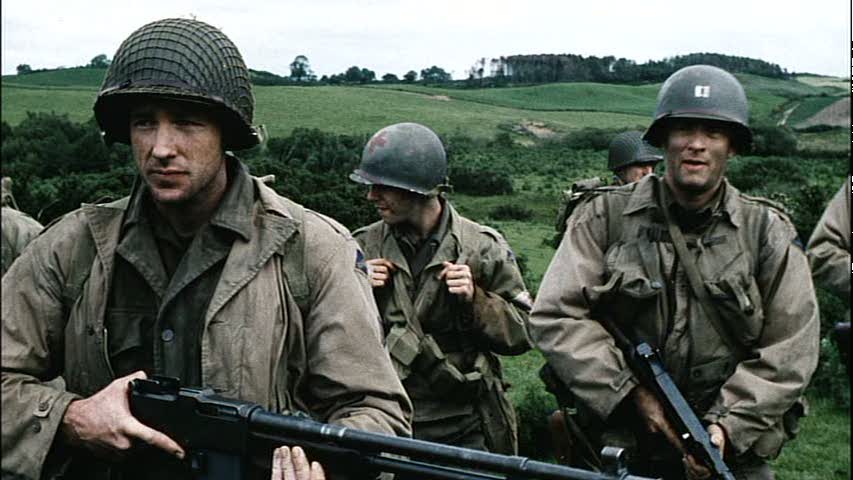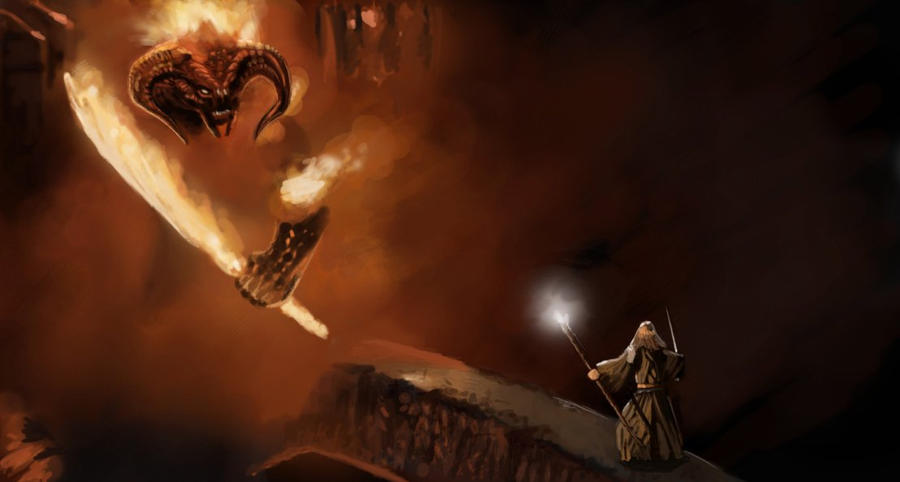
It's hard to believe that 20 years ago to this day, arguably the single greatest and most generation defining animated film of all time was released, and no one really knew what to expect. After all, Disney had all but stomped out any and all competition to their reign as kings of animation, but this new picture wasn't a well known story like The Little Mermaid or Aladdin. And with the expected success of Pocahontas, everyone at Disney pretty much accepted the fact that their little "Bambi in Africa" project would probably fall by the wayside and never be asked about ever again.
To the shock and everlasting pleasure of most people, The Lion King was a monumental success, coming dangerously close to dethroning Jurassic Park as the most successful movie of all time, and garnering critical acclaim and almost unmatchable fan followings. What was it about The Lion King that made an entire world fall in love with characters and ideas we knew nothing about? What is it about this film that reaches people? That is what I'm going to delve into today for a new project we're working on here at SimbaKing94 Productions. In this new series, I'm going to go in depth, analyzing the good, the bad, and the ugly about some of the most critically acclaimed motion pictures of all time, and some of the most despised films in cinematic history. Seeing as how today. June 24th, is the 20th anniversary of one of the most beloved animated films of all time, we've chosen The Lion King first. So, is everybody ready? Here we go....
1. Backstory
There are several stories to the beginning of this project. Many say that it was a pitch idea from the author of "The Brave Little Toaster". Others give credit to Jeffery Katzenberg, Peter Schneider, and Roy Disney, all of whom began thinking about an Africa movie while promoting Oliver and Company in Europe. But a general story idea was in place by the fall of 1990, and was an extremely different film than the final project.
As 1990 became 1991, and Disney was beginning to expand on several projects, "Bambi in Africa" was put into development, with Oliver director George Scribner and acclaimed Disney storyman Roger Allers set to direct, Rescuers Down Under producer Tom Schumacher producing, and a small production team began sculpting ideas for a National Geographic film that was to be animated. The team, led by Allers and Scribner, set out to Kenya to gain an artistic influence from Africa, and many fell in love with the continent.
It was very early into production that Schumacher began to talk with Tim Rice about making "Bambi in Africa" into a musical. Rice, who had stepped in to help Alan Menken finish writing the songs for Aladdin after the death of Howard Ashman, was adamant that in order to make it a musical, they needed a good story and great musicians to mold the gritty story into a full fledged Disney Musical. Though Rice first insisted on ABBA and Menken, Studio Chief Jeffery Katzenberg rejected ABBA and Menken chose to work on Pocahontas. Rice's next choice (though a far fetched idea according to him), was rockstar Elton John. Though reluctant that they'd be able to book John, the teams were stunned to find out that John was extremely eager to write the music for a Disney Animated film.
Scribner and Allers butted heads about the story. Scribner was adamant about making the film into an animated wildlife documentary, with just musical score and animation moving the film forward, dismissing the idea of having Elton John write music for the movie. Allers, fresh off of propelling Beauty and the Beast into hyperdrive, leaned more towards the fresher Disney approach that was making the studio more successful. Scribner was ultimately removed from the project and was replaced by Rob Minkoff. Schumacher changed his position to Executive Producer, while Beast's producer Don Hahn was brought on board to produce the film. With a story in shambles, an indecisive head of the team, and initially bizarre looks at Elton John songs, "King of the Jungle" was an absolute mess.
Desperate to not lose the project, Katzenberg appointed several storywriters to help fuel the picture, even letting Hahn recruit Beauty and the Beast directors Kirk Wise and Gary Trousdale to help reshape the story. Despite a project back on it's feet, Katzenberg conceded that if "Jungle" were to make $50 million dollars, he'd be fine with it, citing the strong feedback coming from the team that was working on Pocahontas. This gave the younger animation team, led by unproven people like Chris Sanders (who would go on to direct Lilo and Stitch and How to Train Your Dragon), Brenda Chapman (who would direct The Prince of Egypt and Brave), and Randy Fullmer (who would help create The Emperor's New Groove), the desire to prove everyone wrong and make "Jungle" into the next Aladdin.
While the story was being reworked, casting was called for, as the directors began to search for the perfect roles for each character. James Earl Jones, Matthew Broderick, Jeremy Irons, Nathan Lane, Cheech Marin, Whoopi Goldberg, and Rowan Atkinson were just some of the many stars brought on board for the picture, now renamed The Lion King.
The turning point for the picture became the hiring of acclaimed composer Hans Zimmer to write the musical score for the film. Zimmer was among the most beloved composers, despite not having won an Oscar yet. With him, Zimmer brought on board his friend Lebo M. from South Africa, who is best known for giving the film it's opening chant as the sun rises in "Circle of Life". Lebo and his people brought to the project their own personal turmoils through which many suffered through, particularly apartheid. The African choirs would add a strong sense of realism to the project, something that would be duplicated in The Hunchback of Notre Dame and Frozen.
In the fall of 1993, as the film was nearing completion, Disney decided to take a different approach and released the entire opening to the film as a teaser trailer for the film. The reaction to the trailer was outrageous, and people began to question if the film would actually not only be a smash hit, or could it perhaps outgross a film like Jurassic Park or Aladdin. Chris Sanders summed it up the best when he said:
"This is either going to be HUGE, or it's not going to work at all"
The buildup and optimism began to grow rapidly for the film, as many of the Disney releases on video began to give people little tidbits more of information about the film (the theatrical trailer can be seen on the original video release for The Return of Jafar). Still, there was reason to caution. Disney hadn't had a significant hit in theaters since Aladdin, and the pressure was growing rapidly. Then, the Northridge Earthquake prevented dozens from being able to reach the studio, prompting the film to be finished in garages.
Then, of course, came the tragedy of company president Frank Wells, which unloaded seeds of disarray and discontent within the ranks of the Walt Disney Company. Katzenberg began to push for Frank's job (after pushing and nudging from colleagues in Hollywood), Roy Disney began to protest both Michael Eisner and Katzenberg, and an infamous Wall Street Journal article about Katzenberg "saving" Disney Animation. Knowing all too well that the writing was on the wall, after the enormous opening weekend of The Lion King ($45 million), he resigned, signifying the end of the golden years of the Disney Renaissance.
2. Storytelling
Unlike the fairy tales that Disney had been producing, The Lion King had the advantage (or disadvantage depending on your point of view) of not being grounded by one overarching story. Influence was drawn from various places, from Shakespearean pieces like "Hamlet" and Macbeth", to biblical themes and messages. That was a huge advantage, because it gave the film a scale. While the other animated films released during this era had their grand moments, every second of this film makes it seem like it's grander and more important than other films released in the era.
3. Emotional Resonance
When you hear people talk about The Lion King, most people bring up the emotional roller coaster ride the film lets us travel on. People tend to relate more to Simba and his adventures in the Pridelands over Aladdin and his own escapades, because we get to see and learn about the lion cubs backstory. We see ourselves in Simba's shoes, wondering if we would be as selfish and prideful if we knew an entire savannah was under our control. We learn to care for Mufasa, even seeing some of our father in him, and are torn apart when he is killed by Scar. We are able to see our own lives and out own growing up experiences within a story that would have otherwise been scoffed off by the entire world as confusing. For those of you who don't like this movie, I reccomend you watch it again, but this time picture yourself in the role of Simba or of Mufasa. Imagine the scenes of this story in your own life. I doubt you've ever dealt with a stampede, but just visualize your own life and the roads you have taken on the way to adulthood to fully grasp this film.
 But it's not just the audiences that feel this way. Hans Zimmer was quoted on the documentary "Pride of The Lion King", in which he details about dealing with the thought of losing his father at a young age, allowing him to get deeply involved with the emotions of the score, which prompted him to win his first Oscar. Jeffery Katzenberg says that the film illustrates his own life in some scenes, dealing with growing up and taking responsibility for yourself. Many animators and people involved with the production can trace a bit of themselves in this film, which is why so many people are drawn to it.
But it's not just the audiences that feel this way. Hans Zimmer was quoted on the documentary "Pride of The Lion King", in which he details about dealing with the thought of losing his father at a young age, allowing him to get deeply involved with the emotions of the score, which prompted him to win his first Oscar. Jeffery Katzenberg says that the film illustrates his own life in some scenes, dealing with growing up and taking responsibility for yourself. Many animators and people involved with the production can trace a bit of themselves in this film, which is why so many people are drawn to it.
4. Musical Tapestry
The music, like the music of the previous films, is able to tell the story and help give us an emotional connection to these characters and scenes. Elton John brings his own bag of tricks to this show, giving us many melodies with which we cannot get out of our heads. Tim Rice, as he did with Aladdin, gives us lyrics that are not only applicable to our own lives, but to the story.
But it's Hans Zimmer's dramatic score that gives us the real sense of being in Africa and actually journeying with Simba on his adventure. A score which ranges from heavy and serious, to playful and humorous, to moody and depressing, Zimmer manages to bring us an entire plethora of emotions in just a few notes. That takes serious skill to do.
5. Artistic Endeavors
While I will probably concede that Aladdin is superiorly animated, you cannot talk about beautiful animation without bringing up The Lion King. Lead by the most talented animation department in the world, Disney Animators studied and observed various animals and African backgrounds and settings to make their film as realistic as possible, while not losing the fantastical edge that Disney is best known for.
6. Cultural Impact
For nearly 20 years, The Lion King reigned as the crown jewel in the Disney library, being the most successful film in their library not accounting for inflation. But the film has passed the baton of Disney's great legacy onto Frozen, which looks to keep the Disney legacy alive for many generations to come. But while Frozen is indeed the new top dog, one mustn't forget the legacy with which Frozen has added. This doesn't just include The Lion King. It includes every animated film that has flown from the drawing boards, to theater screens, to home video, and sometimes even to theater.
I think that these two films will hold their own legacies for the next several years, being both the highest and most widely acclaimed animated films of all time, and some of the most beloved by fans. In many ways, these two films are similar, but not the same. Frozen appeals to this current generation, combining the classical Disney songs of old with the more pop musical inclined, which that other film also did.
The Lion King, regardless of it's thrashing at the hands of Frozen, will hold it's place in the hearts of millions of people around the world and never waver from the public's eye. With a film studio that was gaining momentum, the Disney Studio took a huge gamble and made a film that proved that an animated film didn't need people to be successful. If an animated film can touch people on a large and emotional scale, than that film deserves to be held in the highest esteem. And Disney's 32nd Animated film is just that, managing to bring an entire world to watch a film that will never leave our hearts and will be around for us to show our children for all time and forever.











